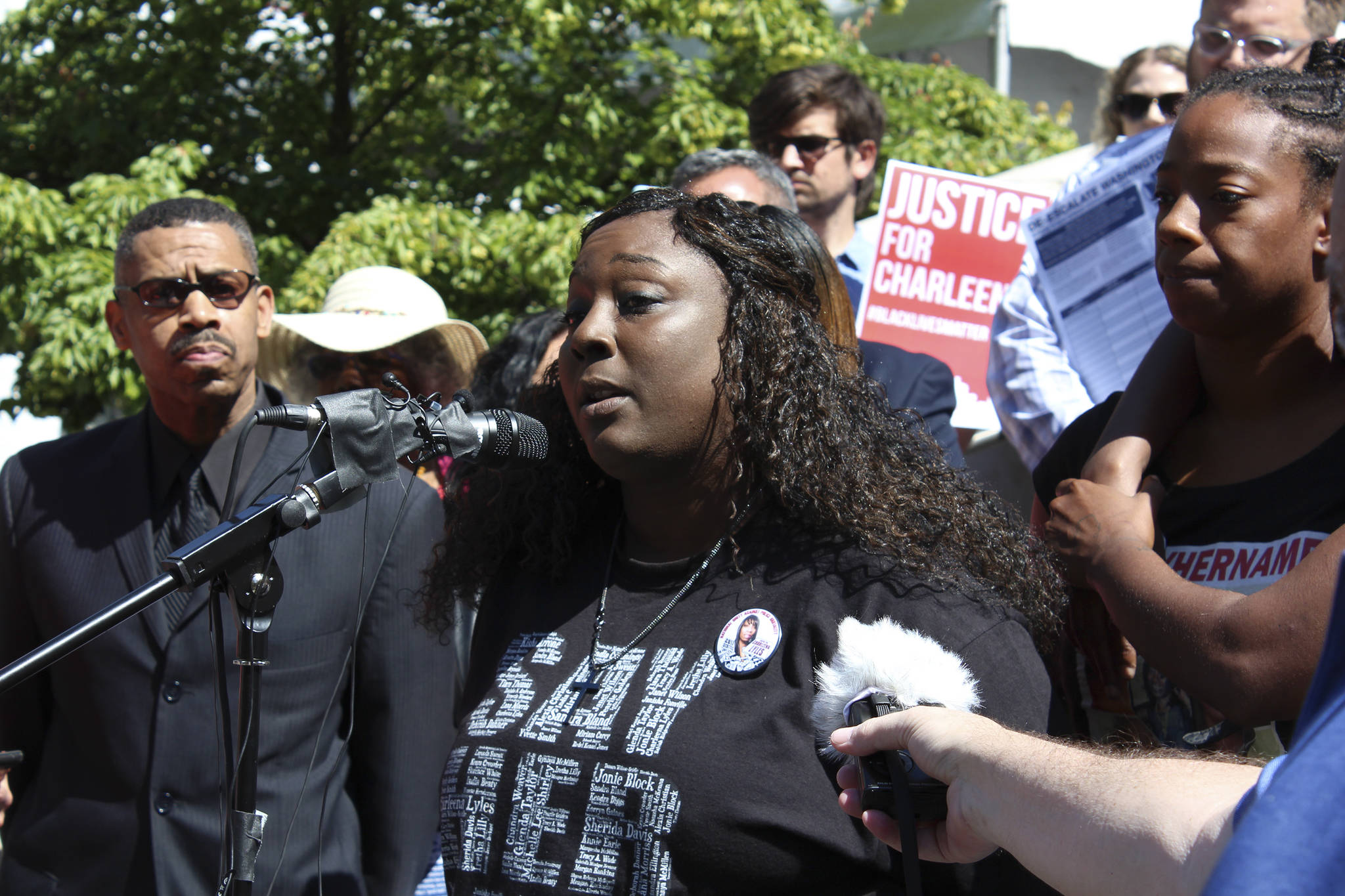A light bulb went off for King County Councilmember Jeanne Kohl-Welles last fall when she was approached by justice system reform advocates who asked her to sponsor legislation that would help the families of police shooting victims. “Basically, it’s a matter of fairness,” she told Seattle Weekly.
King County law enforcement involved in shootings on the line of duty are provided legal counsel during inquests, the fact-finding hearings held after police shootings that create a record of what transpired during the incident. Yet, the county doesn’t provide counsel for the families of those killed. “Whether or not the family of the decedent is able to [hire a lawyer] is really problematic,” said Kohl-Welles. “Many of the families of individuals who are killed by a police officer don’t have a lot of money.”
A lack of legal representation can preclude families from fully participating in the inquest process. Attorneys provide a means of eliciting information that would otherwise remain unknown to the family. “This is a very confusing process for family members, especially when they’re grieving,” she added.
But legislation passed unanimously by the King County Council on Monday could soon level the playing field for the families of those killed in a law enforcement-involved shooting. County council members voted 9-0 to offer publicly-funded legal representation to the families of police shooting victims during inquest proceedings if they so choose to use it.
Inquests have been used in King County to clarify the facts surrounding deaths in law enforcement custody since the 1970s. The King County Prosecuting Attorney’s Office recommends that the County Executive order an inquest after every law enforcement-involved shooting death. During the inquests held in District Court, a six-person jury listens to testimony and then answers questions from attorneys to determine what occurred during the incident. The jurors are not asked to determine if the shooting was lawful.
But the families of police shooting victims are rarely able to fully participate in the fact-finding proceedings. Out of the 34 inquests ordered between 2012 to 2016, only 12 families had pro bono or privately retained attorneys according to data collected by the King County Prosecuting Attorney’s Office. Kohl-Welles was unable to confirm why the 22 others didn’t have legal counsel, although she said she believed that it was because they couldn’t afford one.
Monday’s vote comes shortly after King County Executive Dow Constantine’s Jan. 8 announcement that the county would halt all inquest proceedings until a committee reviewing the process issues final reform recommendations, which are expected to be released in March.
Kohl-Welles hopes that the new legislation will help inform the committee’s reform recommendations, especially since the County Executive supports the ordinance. But perhaps more than anything, Kohl-Welles said that she was moved by the evocative testimony of the families who spoke about the need for publicly-funded legal representation. “To … get family members involved, then just say ‘Okay, we’re not going to do anything for a few months,’ wouldn’t have been very positive,” she said about the decision to go through with the legislation despite the halted inquest process.
Katrina Johnson, Charleena Lyles’ first cousin, has advocated for the legislation throughout the past few months. Johnson supported Sonia Joseph last December when she protested the inquest into the fatal shooting of her son Giovonn Joseph-McDade, because Joseph couldn’t afford to hire an attorney in time. “It’s unfair. It’s not right. Families have to band together and support each other while we’re still in the middle of our grief,” Johnson said.
Johnson has met many grieving families throughout the state since her cousin’s death in June, and thinks that the legislation could help lighten the load for families who already have so much on their plates. “It’s just a shame that you expect us to bury our loved ones, we have to fight off accusations in the media, and then you want us to come up with $10,000-$20,000 to pay for attorney fees? It’s not possible,” Johnson said. “We have to begin restoring a sense of justice in this process that is already unfair to these families who are in the middle of trauma.”
mhellmann@seattleweekly.com








